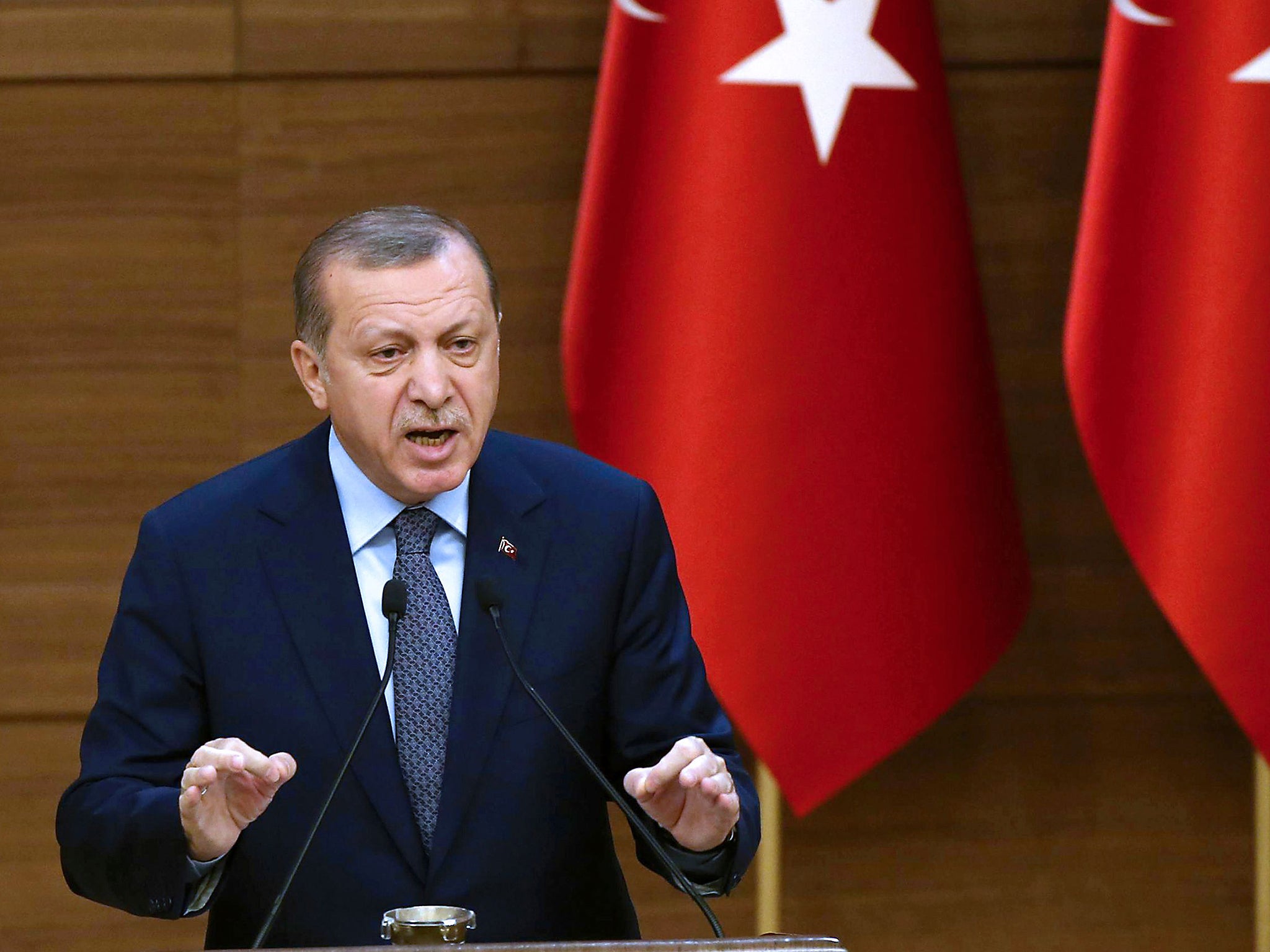Turkey's parliament votes to give President Recep Tayyip Erdogan more executive powers
Representatives vote in favour on first round ballot on proposed legislation which could see Turkish president stay in office until 2029

Turkey’s parliament has voted to advance a bill which would give President Recep Tayyip Erdogan unprecedented executive powers, a move widely criticised by opposition politicians.
Politicians voted to approve the final 18th article of the lengthy package late on Sunday. The proposed reforms – which proponents in Mr Erdogan’s ruling AK party say are necessary to deal with Turkey’s fragile economic and security situations – would give the President the power to appoint and dismiss ministers, to once again become head of a political party, and possibly govern until 2029.
Opposition politicians and democracy activists have said the bill is dangerously close to a form of authoritarianism.
During a debate on the legislation last week, Prime Minister Binali Yildirim said the reform would “resolve the problem of Turkey having two executive authorities.”
“There needs to be one authority in the executive branch,” he said. “Two captains sink the ship, there needs to be one captain.”
A second round of voting is due to begin on Wednesday, after any proposed changes to the articles in the bill are debated.
If the reform legislation is passed by 330 of the 550 members of the assembly in a third vote, it will go to a nationwide referendum, expected in the spring.
President Erdogan has steadily consolidated his control of Turkey’s branches of government since his election in 2014.
There has been a particular crackdown on members of the opposition, academics, journalists and rights activists since a failed military coup in July last year, after which the government declared a state of emergency.
Join our commenting forum
Join thought-provoking conversations, follow other Independent readers and see their replies
Comments